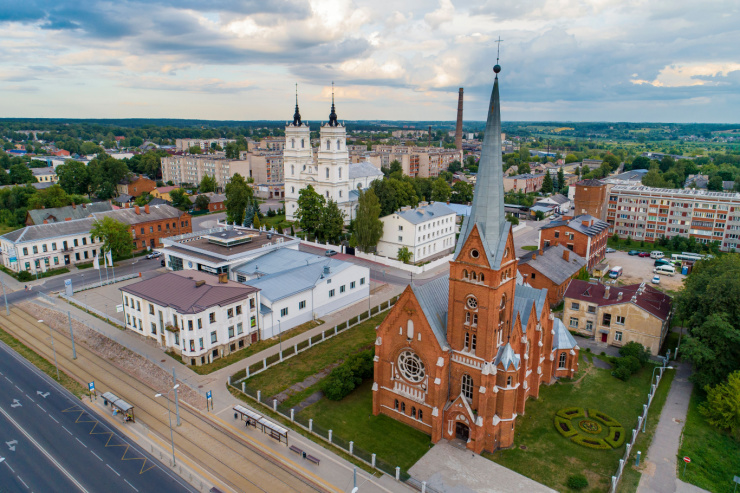In The Spectator, Rod Liddle compares the plot of a 2016 BBC series to potentially calamitous events that may unfold in the Latvian town of Daugavpils. He writes:
You can tell quite a bit about a place by the number of national flags on display. One or two on public buildings here and there is a healthy genuflection to a moderate and comfortable patriotism. But groups of the same national flag every five paces, on every building and festooning the parks and boulevards — well, there’s something going on, isn’t there? You’re in a place where trouble is surely just around the corner, a place where the national authorities may not feel entirely secure. What sort of trouble? Well, one wouldn’t want to be over-dramatic, obvs, but in this particular case, World War Three.
This is Daugavpils, in the far south-east corner of Latvia, only a well-directed gobbet of phlegm from the Belarus border and about seventy-five miles from the Russian frontier. It is a Russian town, by which I mean that its population is some 75 percent Russian — or 48 percent if you believe the official Latvian statistics, which nobody does.
In 2016 the BBC staged a mock World War Three for the mass entertainment of its viewers and the whole shebang kicked off right here. In this fiction, the mayor of Daugavpils declared independence from Latvia and the state authorities sent in the police and troops to quell the local fervor for revolt, which had perhaps been exacerbated by Russian agents from across the border. Reacting to the perceived subjugation of the Russki majority in this town, Vladimir Putin sent in the troops as a supposedly protective and defensive gesture. Latvia is of course a member of NATO, and western troops were thus compelled to respond. Within a surprisingly short space of time the entire Baltic states — and shortly afterwards the rest of the world — were glowing like a Belisha beacon.
This scenario was played out six years before the Russian invasion of Ukraine, when the Russian minority in Latvia was rubbing along OK, if a bit resentfully, with its former subject people. But that invasion has changed the mood music a little. Three quarters of ethnic Latvians are supportive of Ukraine; the figure for ethnic Russians is 27 percent. Most of the rest are with Putin.
The mayor the BBC perhaps had in mind could well be the current one, Andrejs Elksnins, who until recently was a member of the “Harmony Center” coalition, basically a Social Democrat alliance representing minority Russian interests in Latvia. Harmony gets a little touchy and equivocal when Latvians talk about the Russian “occupation” of their country: they mince their words. Still, they have been fairly clear on the subject of the invasion of Ukraine — i.e., accepting that it was a bit naughty, all things considered. Elksnins, who is part-Russian and part-Latvian, has not gone along with this amenable approach. He has suggested, for example, that Crimea properly belongs to “the Russian Federation” and has not denounced the invasion of Ukraine.
More recently, he has defied national government policy by dragging his feet over the demolition of Soviet-era statues in the town and even encouraged townsfolk to strew them with flowers. When construction workers came in to tear down the statues, they were met with threats and abuse from the general public. Elksnins has, further, improved ties with Belarus and attended an independence day celebration put on by the Lukashenko regime in Minsk. For this he was hammered by the Latvian state security agency, which said: “Such an action contradicts the condemnatory stance of the Latvian state against the crimes committed by Russia against Ukraine and its people, and also does not contribute to the unity of Latvian society in these difficult circumstances.”
Read more here.
If you’re willing to fight for Main Street America, click here to sign up for the Richardcyoung.com free weekly email.






